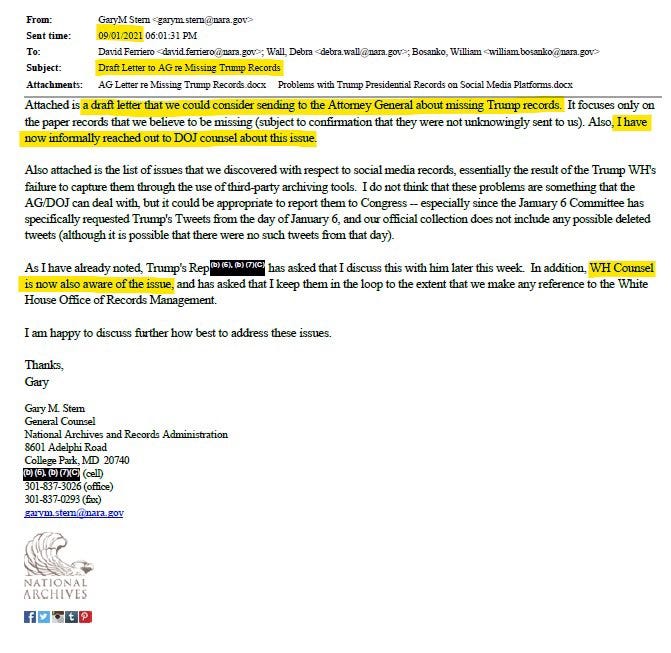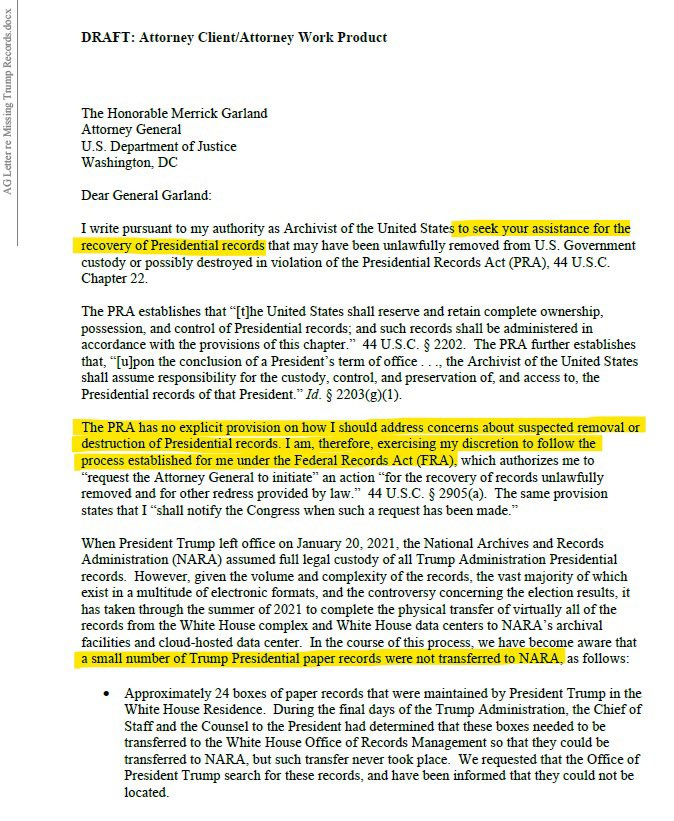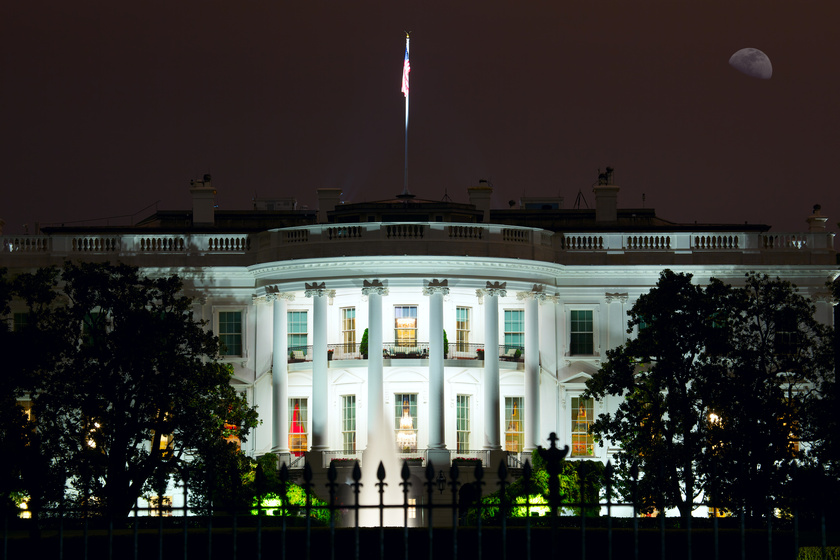WASHINGTON — Newly uncovered emails are raising fresh questions about the classified documents case against former President Donald Trump, suggesting the Biden White House was involved long before the Justice Department (DOJ) officially stepped in.
The emails, obtained by America First Legal (AFL), show that officials at the National Archives and Records Administration (NARA) were growing frustrated with Trump’s handling of presidential records as early as mid-2021—months before the agency’s official referral to the DOJ in February 2022.

According to AFL, these emails also confirm that a “special access request” from the Biden White House played a role in the FBI’s raid on Mar-a-Lago in August 2022. The Biden administration has maintained that the investigation only began after NARA discovered classified documents in Trump’s possession. But these new emails suggest government officials had their sights on Trump’s records much earlier.
Click here to become a paid subscriber, if you aren’t one already, and support my independent journalism. This is a story the mainstream media won’t show you.
In the summer of 2021, then-Archivist of the United States David Ferriero wrote that he was “out of patience” with Trump’s team. Around the same time, NARA General Counsel Gary Stern started drafting a letter to Attorney General Merrick Garland, asking for help in retrieving presidential records—despite admitting that the Presidential Records Act doesn’t specifically authorize such action.

By September 2021, NARA had already looped in the Biden White House Counsel’s Office and the DOJ. They even had a letter to Garland ready to go, but ultimately decided to hold off, hoping to work things out with Trump’s team. Instead, a deputy White House counsel under Biden came up with a different plan—a “special access request” to obtain Trump’s records from NARA, a move that AFL argues set the stage for the FBI’s involvement.
This latest revelation is sure to fuel Trump’s claims that the case against him is politically motivated. The Biden administration has yet to respond to the findings.




















